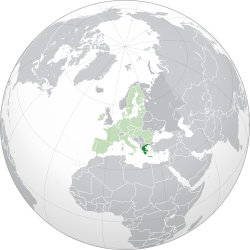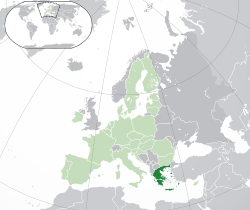**Historical Background**:
– Greece, known as Hellas in Ancient Greek, is considered the birthplace of Western civilization.
– It was home to advanced civilizations like the Cycladic, Minoan, and Mycenaean cultures.
– The Greek Dark Ages followed the collapse of the Mycenaean civilization, leading to the emergence of city-states and kingdoms.
– Classical Greece saw a cultural boom in various fields, including architecture, philosophy, and mathematics.
– The Hellenistic period, marked by Alexander the Great’s conquests, spread Greek culture and knowledge across a vast empire.
**Geography and Modern Greece**:
– Located in Southeast Europe, Greece shares borders with Albania, North Macedonia, Bulgaria, and Turkey.
– It boasts the longest coastline in the Mediterranean Basin and features thousands of islands.
– Modern Greece emerged as a nation state in 1830 and is a member of the United Nations, European Union, and eurozone.
– Greece is known for its high-income economy and is considered the cradle of Western civilization.
– The country has a rich history of democracy, philosophy, and scientific advancements.
**Byzantine and Ottoman Periods**:
– The Byzantine Empire, with its capital in Constantinople, lasted until 1453 and had a significant Greek influence.
– Greece experienced invasions by various groups during the medieval period, leading to dislocation and challenges.
– The Ottoman rule imposed heavy taxes and discrimination against Christians in Greece.
– The Greek Revolution of 1821 marked a significant turning point in Greek history, leading to the War of Independence.
– The fall of Constantinople in 1453 and the Ottoman conquest had a lasting impact on Greek culture and society.
**Kingdom of Greece and State Development**:
– The Kingdom of Greece was established in the 19th century, with Otto von Wittelsbach as the first monarch.
– Reforms in education, civil administration, and legal code laid the foundation for modern institutions in Greece.
– The Church of Greece played a vital role in emphasizing Greek identity and Orthodoxy.
– International intervention and recognition, including the Battle of Navarino and the London Protocol, helped establish the nascent Greek state.
– The evolution of government in Greece saw a transition from a constitutional monarchy to a more democratic system.
**Territorial Evolution and Challenges**:
– Greece underwent territorial expansion through nationalist movements and acquisitions like Thessaly and parts of Epirus.
– Economic challenges, corruption, and overspending led to public insolvency in 1893, requiring international financial intervention.
– Infrastructure projects like the Corinth Canal had a significant impact on Greece’s development.
– The country faced defeats and reconstructions, including involvement in World War I, the Greco-Turkish War, and the Greek exodus from Asia Minor.
– Dictatorship, World War II, and the subsequent civil war marked turbulent periods in Greece’s recent history.
This article may be too long to read and navigate comfortably. When this tag was added, its readable prose size was 19,400 words. (June 2023) |
Greece, officially the Hellenic Republic, is a country in Southeast Europe. Located on the southern tip of the Balkan peninsula, Greece shares land borders with Albania to the northwest, North Macedonia and Bulgaria to the north, and Turkey to the east. The Aegean Sea lies to the east of the mainland, the Ionian Sea to the west, and the Sea of Crete and the Mediterranean Sea to the south. Greece has the longest coastline on the Mediterranean Basin, featuring thousands of islands. The country comprises nine traditional geographic regions, and has a population of nearly 10.4 million. Athens is the nation's capital and largest city, followed by Thessaloniki and Patras.
Hellenic Republic | |
|---|---|
| Motto: Ελευθερία ή Θάνατος Elefthería í Thánatos (English: "Freedom or Death") | |
| Anthem: Ύμνος εις την Ελευθερίαν Ímnos is tin Eleftherían (English: "Hymn to Liberty") | |
Location of Greece (dark green) – in Europe (light green & dark grey) | |
| Capital and largest city | Athens 37°58′N 23°43′E / 37.967°N 23.717°E |
| Official language and national language | Greek |
| Religion (2017) |
|
| Demonym(s) |
|
| Government | Unitary parliamentary republic |
| Katerina Sakellaropoulou | |
| Kyriakos Mitsotakis | |
| Konstantinos Tasoulas | |
| Legislature | Hellenic Parliament |
| Establishment history | |
• Independence declared from the Ottoman Empire | 25 March 1821 (traditional starting date of the Greek War of Independence), 15 January 1822 (official declaration) |
| 3 February 1830 | |
| 24 July 1974 | |
| 11 June 1975 | |
| Area | |
• Total | 131,957 km2 (50,949 sq mi) (95th) |
• Water (%) | 1.51 (2015) |
| Population | |
• 2023 estimate | |
• 2021 census | |
• Density | 78.9/km2 (204.4/sq mi) (105th) |
| GDP (PPP) | 2023 estimate |
• Total | |
• Per capita | |
| GDP (nominal) | 2023 estimate |
• Total | |
• Per capita | |
| Gini (2023) | medium |
| HDI (2022) | very high (33rd) |
| Currency | Euro (€) (EUR) |
| Time zone | UTC+02:00 (EET) |
• Summer (DST) | UTC+03:00 (EEST) |
| Date format | dd.mm.yyyy (AD)b |
| Driving side | right |
| Calling code | +30 |
| ISO 3166 code | GR |
| Internet TLD | |
| |
Greece is considered the cradle of Western civilization, being the birthplace of democracy, Western philosophy, Western literature, historiography, political science, major scientific and mathematical principles, theatre, and the Olympic Games. From the eighth century BC, the Greeks were organised into various independent city-states known as poleis (singular polis) that spanned the Mediterranean and Black seas. Philip II of Macedon united most of present-day Greece in the fourth century BC, with his son Alexander the Great rapidly conquering much of the known ancient world from the eastern Mediterranean to northwestern India. The subsequent Hellenistic period saw the height of Greek culture and influence in antiquity. Greece was annexed by Rome in the second century BC, becoming an integral part of the Roman Empire and its continuation, the Byzantine Empire, which was predominately Greek in culture and language. The Greek Orthodox Church, which emerged in the first century AD, helped shape modern Greek identity and transmitted Greek traditions to the wider Orthodox world. After the Fourth Crusade in 1204, Latin possessions were established in parts of the Greek peninsula, but most of the area fell under Ottoman rule by the mid-15th century.
Following a protracted war of independence, which started in 1821, Greece emerged as a modern nation state in 1830. Over the first hundred years, the Kingdom of Greece sought territorial expansion, mainly realized in the early 20th century during the Balkan Wars and up until its Asia Minor Campaign ended with catastrophic defeat in 1922. The short-lived republic that was established in 1924 was beset by the ramifications of civil strife and the challenge of resettling refugees from Turkey. In 1936 a royalist dictatorship inaugurated a long period of authoritarian rule, marked by military occupation, civil war and military dictatorship. Democracy was restored in 1974-5, leading to the current parliamentary republic.
Greece is a democratic and, having achieved record economic growth from 1950 through the 1970s, a developed country with an advanced high-income economy, the second largest in the Balkans, where it is an important regional investor. A founding member of the United Nations, Greece was the tenth member to join what is today European Union and has been part of the eurozone since 2001. It is also a member of numerous other international institutions, including the Council of Europe, NATO, the OECD, the WTO, and the OSCE. Greece has a unique cultural heritage, large tourism industry, and prominent shipping sector. The country's rich historical legacy is reflected in part by its 19 UNESCO World Heritage Sites. Greece was the ninth most-visited country in the world in 2022.




